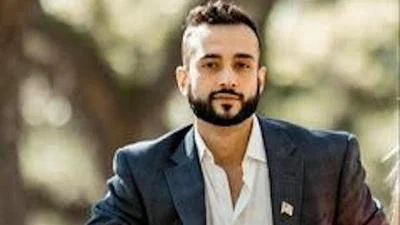An analyst for a think tank has expressed concern and disdain for the recent House Resolution 4 (HR 4), that would allow the Department of Justice veto power over voters' rights in every state.
In Hans von Spakovsky's report, "Enabling Partisan Federal Bureaucrats to Control State Election Laws: The Unnecessary and Unconstitutional John Lewis Voting Rights Advancement Act (H.R. 4)" he argues HR 4 is "a federal power grab designed to thwart election reform."
Von Spakovsky is an election law analyst for the Heritage Foundation.
"There is no longer any justification for giving the federal government the ability to veto the election laws and regulations that citizens and their elected representatives choose to implement in their respective states," he wrote. "H.R. 4 is a federal power grab designed to thwart election reform and manipulate state redistricting decisions."
HR 4, or the John Lewis Voting Rights Advancement Act, will allow the Department of Justice (DOJ) to change polling locations, relocate voting district lines in every state and will make it more difficult for states to defend themselves against any litigation.
"H.R. 4 is intended to overturn the decision by the Supreme Court of the United States in Shelby County v. Holder (2013), which struck down the coverage formula for Section 5 of the Voting Rights Act. Section 5 was intended to be a temporary provision that required covered jurisdictions to get approval [preclearance] from the DOJ or a federal court in Washington, D.C., before making any changes in their voting laws," he wrote.
Von Spakovky said HR 4 is unconstitutional in that it does not uphold what the Supreme Court ruled and provisions to prevent voter discrimination, already prevented under Section 2 of the Voting Rights Act.
"It is easier to register and vote today than at any other time in America’s history," he wrote. "The permanent, nationwide provisions of the Voting Rights Act, such as Section 2 and Section 3, are more than adequate to protect voting rights in those rare instances where discrimination does occur. There is no need to bring back the preclearance provisions of Section 5 or to implement a new, vastly expanded Section 5."
Von Spakovsky said HR 4 would give electoral decisions to the DOJ that are based on political bias. Additionally, he wrote, the federal government will be given powers that the Constitution states belong to the states to decide.
An article from the Sunshine Sentinel said that U.S. Census Data shows that Democratic claims of voter suppression and discrimination are unfounded. According to von Spakovsky, HR 4 will "make race the predominant factor in the election process [and] advance the partisan interests of one political party."
According to the Sunshine Sentinel, black American voter turnout was higher in 2020 than in 2016, showing proof that minorities are not being discriminated against at the polls.
Critics argue new voter laws could limit black participation in 2024 and the 2020 vote is not part of their argument.









